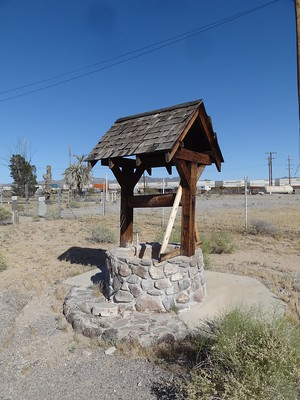- Yes and no. You don’t pay for the water you use from a well, but you pay for installation, modification, maintenance of the well and for water treatment/filtration systems.
You may have to pay a sewage bill if your house is connected to a municipal water system or you don’t have your septic tank.
The basic difference between well water and city water is that you don’t have to pay a monthly fee for using water from a well. In other words, city water has a monthly bill because it is tested and treated before supplied to your home or office.
This being said, it is important to know about all the costs associated with using well water if you are planning to build a well on your property or move to a place with a water well.
Related Guide: Everything you Need to Know Before Moving to a House with Well Water

Common Costs Associated with Well Water
Building a New Well
The total average cost varies from $1500 to $13,000. This includes application costs, site checking, drilling, casing, and equipment (pump, screen, pressure switch & wiring, storage tank, and water treatment systems). The local codes may require installing a septic tank with a water well. So, don’t forget to factor in that cost while making estimates.
The factors that affect the total cost include well depth, soil quality, well permit cost, septic system, water testing, and type of treatment system you install.
You can read well drilling costs for all 50 states here.
Well Water Testing and Treatment Costs
The cost to treat well water depends on water quality, filter size, and how much water you use. Water testing is recommended annually, after floods, or when you notice a change in water quality. It usually costs from $20 to $300.
The water treatment cost varies based on the type of water filter you install. Here are the estimated costs for the commonly used filtration systems.
- Sediment Filter: $40 – $300
- Water Softener (salt-based): $600 – $3000
- Water Softener (salt-free): $150 – $2000
- Iron Filter: $600 – $2500
- Acid Neutralizer: $500 – $3000
- Reverse Osmosis Filter: $200 – $2000
- UV Purification System: $500 – $2000
- Whole House Water Filter: $200 – $5000
- Shock Chlorination: $50 – $500
Click here to read more about water treatment costs for well water.
Ongoing Maintenance Costs
There are a few ongoing maintenance costs associated with well water. For example, water testing, replacing filters, salt, and resin (water softener), adding chemicals, and shock chlorination. You may have to replace the well pump, pressure switch, wiring, water tank, and well screen or repair the well casing from time to time. Although these things don’t go bad too soon, you must keep them in mind.
You may incur additional costs for well maintenance and testing in case of a flood or if the well hasn’t been used for quite a while.
Electricity Costs
A modern well system uses electricity to draw and supply water to your home. These costs are negligible if you have a small pump and you don’t run it for longer. However, the costs can be substantial if you have a large family and use lots of water. Moreover, you may need to add a pressure booster to increase water pressure and deliver water to upper stories or rooms far away from the well.
You may need a generator to run the well pump when there is no power. Homes with wells will have no water soon after the light goes out. So, it is better to have a generator for such tough times.
Related Read:How to Pump Water from a Well without Electricity?
Well Contractor Fee
Most states in the US require private well owners to hire licensed contractors to perform any modification or rehabilitation task on water wells. These contractors charge a fee as well. So, you’ll have to pay for it as well.
Are there any costs for using a Community Well or Shared Water Well?
Yes. You need to pay electricity and maintenance charges if you use a shared well. The charges typically include electricity costs for water pumps, water treatment systems charges, infrastructure charges, and water well maintenance.
Who has to pay for Water Well Testing and Maintenance in a Rented Home?
Some landlords don’t allow tenants to manage water systems, while some do. The payment terms and who is responsible for paying the maintenance charges depend on the rental agreement.
Does a Water Well increase your Property’s Value?
Yes. Homes with working water wells are sold at a higher price than ones with city water. Many prefer buying homes with water wells because they don’t have to pay monthly bills. Moreover, there is no restriction or caps on water usage. The water pressure is better than city water. Above all, well water quality is better than city water.
The Overall Analysis: Is Well Water Cheaper than City Water?
Yes. It is cheaper than city water. The initial costs may seem huge and out of your budget, but it is cheaper in the long run. Considering all the costs related to well water, like testing, water treatment systems, and septic tank costs, well water is still cheaper.
Plus, you have the added benefit of control over your water quality. You can maintain water quality just as you like. Generally, well water is better than city water because it is rich in minerals and healthy nutrients.
Most water systems don’t require frequent maintenance, so the monthly cost is minimal. Some private wells have excellent water quality. You don’t even have to install a water treatment system.
